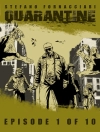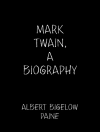When the young English widow Lilia Herriton takes off on the grand tour and along the way marries a penniless Italian, her in-laws are far from amused. That the marriage should fail and poor Lilia die tragically are only to be expected. But that Lilia should have had a baby – and that the baby should be raised as an Italian! – are matters requiring immediate correction by Philip Herriton, his dour sister Harriet, and their well-meaning friend Miss Abbott.
About the author
Edward Morgan Forster, generally published as E.M. Forster, was an novelist, essayist, and short story writer. He is known best for his ironic and well-plotted novels examining class difference and hypocrisy in early 20th-century British society. His humanistic impulse toward understanding and sympathy may be aptly summed up in the epigraph to his 1910 novel Howards End: ‘Only connect’.
He had five novels published in his lifetime, achieving his greatest success with A Passage to India (1924) which takes as its subject the relationship between East and West, seen through the lens of India in the later days of the British Raj.
Forster’s views as a secular humanist are at the heart of his work, which often depicts the pursuit of personal connections in spite of the restrictions of contemporary society. He is noted for his use of symbolism as a technique in his novels, and he has been criticised for his attachment to mysticism. His other works include Where Angels Fear to Tread (1905), The Longest Journey (1907), A Room with a View (1908) and Maurice (1971), his posthumously published novel which tells of the coming of age of an explicitly gay male character.












